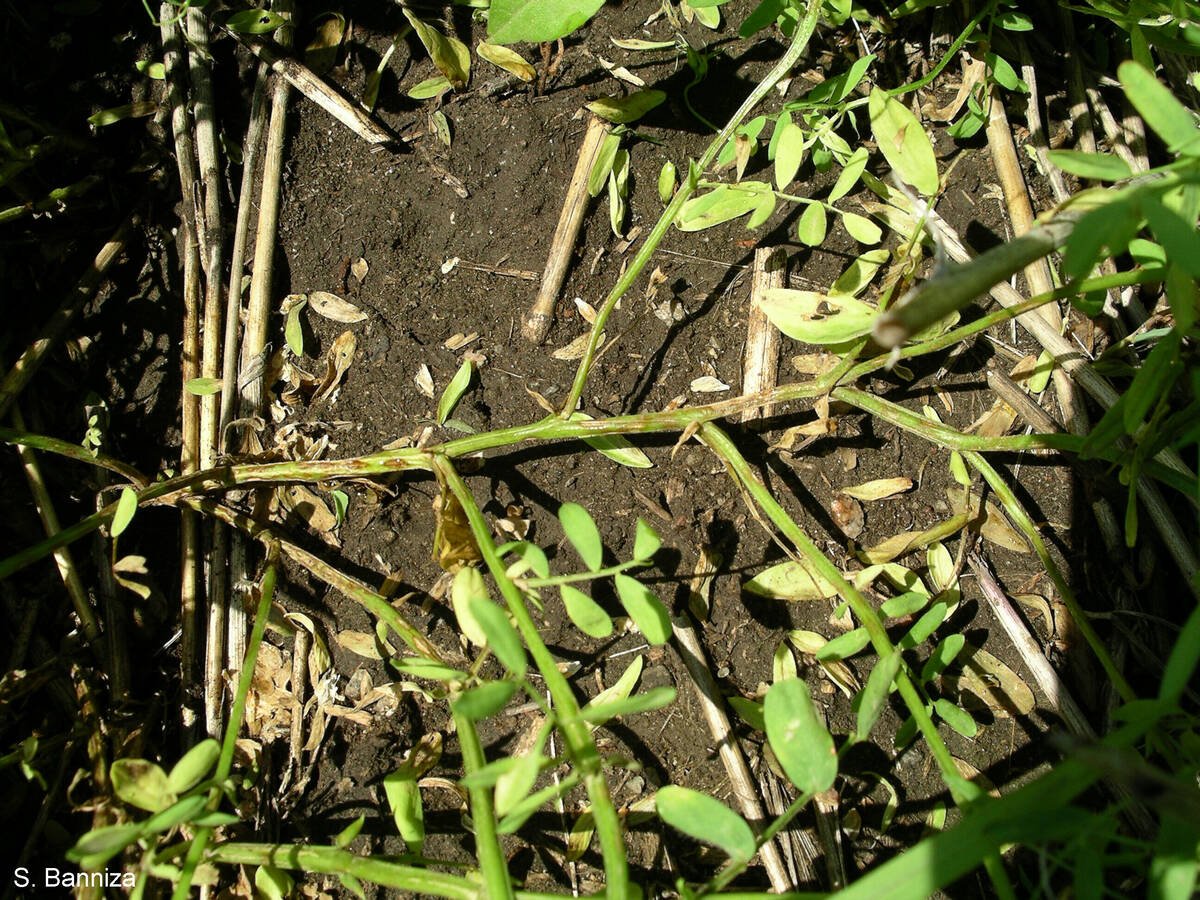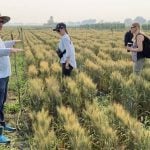Alberta grain producers hope they can answer corporate questions about sustainability when the big food companies come calling.
About 40 farmers have joined a pilot project to test three initiatives and gain a better idea of what sus-tainability means at the grassroots level.
Jason Lenz is one of those farmers. He believes many of the sustainability requirements already fit with the goals for his family owned farm in central Alberta.
For him, sustainability encompasses continuous improvement, profitability and following best management practices that give him the right to farm.
Read Also

Anthracnose resistant lentils within reach
The risk that anthracnose poses to lentils continues to be high priority for the pulse sector.
“It is more than just the latest craze. It is here to stay,” he said during a break at the Western Barley Growers Association annual meeting, which was held in Calgary Feb. 12-13.
Alberta’s grain, oilseed and pulse commissions, which belong to the Canadian Round Table on Sustainable Crops, have combined forces on the project.
The initial assessment is expected to take about half a day, in which auditors evaluate the farm’s approach to soil nutrient testing, precision farming, monitoring air and water quality, handling waste, environmental stewardship and business management.
“Farms across Western Canada have been addressing these concerns for years, even generations,” Lenz said.
Many have adopted precision agriculture, increased fuel efficiency, reduced harmful emissions and regularly assess air and water quality.
He said most would be out of business if they were not farming in a sustainable manner. Farmers need to provide direction and show they are behaving responsibly, he added.
“This is our opportunity to stand up and be proud of what we do on our farms,” he said.
Erin Gowriluk, who works for the Alberta barley and wheat commissions, said the Alberta Crops Sustainability Certification Pilot project will test three internationally recognized programs and streamline them to local conditions.
“Our pilot project is an attempt to get a better understanding of the definition of sustainability and what it means at the farm level,” she said.
“The conversation is happening whether we like it or not.”
Major food and beverage companies such as Anheuser-Busch, Heineken, Kellogg’s, General Mills and McDonald’s support the Sustainable Agriculture Initiative Program.
Farmers hoping to supply these companies must meet certain standards in soil fertility, energy use, waste management, growing crops suitable to the local climate, pest management and economic and social sustainability.
The ISCC Plus program was developed for food, feed, technical-chemical and other bioenergy applications. The European Union recognized it as one of the first certification schemes that meets EU renewable energy requirements.
The Unilever Sustainable Agriculture code, which was developed in 2010, applies to all agriculture products that the company buys. All new suppliers must comply by 2017.
It also addresses the use of agricultural chemicals and fuel, water and soil quality, biodiversity, energy use, waste handling, dealing with social and human capital and animal welfare considerations.
Lenz said the Alberta approach must be reasonable in its demands for record keeping and farmers’ ability to meet all the requirements.
“We want an approach to sustain-ability that won’t be burdensome to our everyday lives,” he said.
At the same time, he added, farmers must accept that Canada is an exporter whose foreign customers are asking for this. The consequence is that those customers may turn to the competition if Canada cannot comply.

















